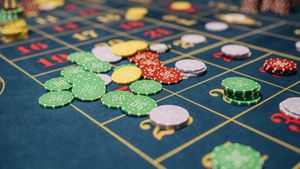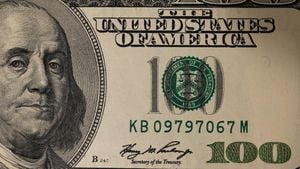The world of science holds its breath as the 2024 Nobel Prize in Physics unveiled its laureates: John J. Hopfield and Geoffrey E. Hinton, two luminaries recognized for their groundbreaking contributions to machine learning and artificial intelligence. This year marks a pivotal moment, as the Nobel Prize acknowledges the role of physics not merely as theoretical constructs but as practical tools integral to modern technology. Hopfield's invention of the Hopfield network, combined with Hinton's innovative methods for data processing, laid the foundation for the intelligent systems we now take for granted.
John Hopfield, reflecting on his prize, shared his initial disbelief upon receiving the news. "It didn't sink in until I got to the fourth email!" he recalled from his serene cottage located within the tranquil confines of Selborne, England. This place, almost secretive with its population under one thousand, provided the unusual backdrop to such significant news. He recounted how he was enjoying time with his wife when he came back to find inundated with congratulatory emails, initially thinking they might not pertain to him directly. "My first reaction was, they’ve announced the Nobel Prize because he described it without actually managing to connect me and the Nobel Prize," he said, touching on the incredulity many feel upon receiving such honors.
What led Hopfield to this monumental achievement was not mere chance. His work began not with the intention to develop tools for machine learning but with the desire to understand the human mind and its workings. The connection between brain structures and artificial neural networks became clearer to him over time as he observed their collective phenomena. "I slowly wove my way from an interest in how the brain functioned to questions of how hardware or software produce such things." His literary insights about physics intertwined with biology reflect the multidisciplinary nature of today's scientific innovations, setting the stage for redefining how we think about machine learning.
Geoffrey Hinton, who shares this prestigious recognition with Hopfield, is no stranger to acknowledging the dual-edged nature of advancements in AI. Known for voicing concerns about the power and unpredictability of machine learning, he emphasizes how reliant society has become on these systems. Just like Hopfield, Hinton is eager for more comprehensive explanations behind how these neural networks function. He expects the future of machine learning will demand cooperation between various fields of study to answer even more complex questions arising from its implementation.
The core of their achievements rests heavily on the premise of artificial intelligence operating similarly to the human brain. Combining insights from the 1940s, researchers, including the notable Donald Hebb, laid the groundwork for the field of neural networks, allowing for blurrier interpretations and complex image processing, as seen today. Hopfield's contributions particularly highlight how neural networks, inspired by the brain's behavior, allow machines to learn from experience rather than by fixed programming.
Unlike traditional software, which executes instructions step-by-step like following a recipe, machine learning networks use patterns to inform their decision-making. For example, recognizing objects within images is more complex than running through defined commands; rather, it requires the ability to distinguish shapes, shades, and features based on examples.
The crux of Hopfield's invention, the Hopfield network, mimics how brains operate on associative memory. This concept allows for the retrieval of stored patterns even when they appear incomplete or distorted. Once, Hopfield likened the process to rolling a ball through peaks and valleys; just as the ball settles in the nearest valley, the network finds the closest stored pattern when fed with data. This kind of flexibility marks significant progress from previous models and showcases the potential for neural networks to influence future computational methods.
Hopfield's approach shows his commitment to refining these networks. Initially, he focused on binary values, akin to pixels in black and white imagery. Yet, advancements have led to nodes capable of storing various values, much like colorful pixelated images, enhancing the network's ability to handle complex datasets and images simultaneously.
Meanwhile, Geoffrey Hinton stands at the forefront of enhancing these theories, particularly in the exploration of how categories emerge from raw data. His intuition about the brain's processing challenges has driven his research, leading to advancements like Deep Learning—systems capable of learning from vast amounts of unstructured data, fueling the current AI boom.
The 2024 Nobel Prize signifies more than recognition of scientific prowess. Instead, it serves as a call to action, urging collaborative efforts across various scientific fields to create not only reliable but also comprehensible AI technology. Hopfield's and Hinton's collective work promises to provide the tools needed to tackle the enormous challenges presented by AI, ranging from ethical concerns to reliability. Their research evidences the interplay of physics, biology, and artificial intelligence, inspiring future advancements.
While much progress has been made, both physicists warn against complacency. Through their interviews, they emphasized the importance of ethical practices and transparency within AI development. Hopfield's insights about the interplay among physics, chemistry, and biology present the basis for interdisciplinary research necessary for addressing the practical repercussions of their scientific feats.
With their groundbreaking inventions now recognized by one of the highest honors, Hopfield and Hinton illuminate the path forward, challenging both existing paradigms and the ways we understand intelligence—be it organic or synthetic. The Nobel Prize honors their vision, urging future generations to view their work as not just tools, but integral components of evolution within AI and learning systems.



